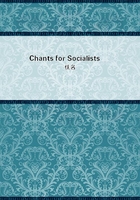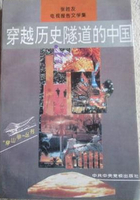Thucydides, in quoting the "Hymn to Apollo", calls it PROOIMION, which ordinarily means a `prelude' chanted by a rhapsode before recitation of a lay from Homer, and such hymns as Nos. vi, xxxi, xxxii, are clearly preludes in the strict sense; in No. xxxi, for example, after celebrating Helios, the poet declares he will next sing of the `race of mortal men, the demi-gods'. But it may fairly be doubted whether such Hymns as those to "Demeter" (ii), "Apollo" (iii), "Hermes" (iv), "Aphrodite" (v), can have been real preludes, in spite of the closing formula `and now I will pass on to another hymn'. The view taken by Allen and Sikes, amongst other scholars, is doubtless right, that these longer hymns are only technically preludes and show to what disproportionate lengths a simple literacy form can be developed.
The Hymns to "Pan" (xix), to "Dionysus" (xxvi), to "Hestia and Hermes" (xxix), seem to have been designed for use at definite religious festivals, apart from recitations. With the exception perhaps of the "Hymn to Ares" (viii), no item in the collection can be regarded as either devotional or liturgical.
The Hymn is doubtless a very ancient form; but if no example of extreme antiquity survive this must be put down to the fact that until the age of literary consciousness, such things are not preserved.
First, apparently, in the collection stood the "Hymn to Dionysus", of which only two fragments now survive. While it appears to have been a hymn of the longer type (15), we have no evidence to show either its scope or date.
The "Hymn to Demeter", extant only in the MS. discovered by Matthiae at Moscow, describes the seizure of Persephone by Hades, the grief of Demeter, her stay at Eleusis, and her vengeance on gods and men by causing famine. In the end Zeus is forced to bring Persephone back from the lower world; but the goddess, by the contriving of Hades, still remains partly a deity of the lower world. In memory of her sorrows Demeter establishes the Eleusinian mysteries (which, however, were purely agrarian in origin).
This hymn, as a literary work, is one of the finest in the collection. It is surely Attic or Eleusinian in origin. Can we in any way fix its date? Firstly, it is certainly not later than the beginning of the sixth century, for it makes no mention of Iacchus, and the Dionysiac element was introduced at Eleusis at about that period. Further, the insignificance of Triptolemus and Eumolpus point to considerable antiquity, and the digamma is still active. All these considerations point to the seventh century as the probable date of the hymn.
The "Hymn to Apollo" consists of two parts, which beyond any doubt were originally distinct, a Delian hymn and a Pythian hymn.
The Delian hymn describes how Leto, in travail with Apollo, sought out a place in which to bear her son, and how Apollo, born in Delos, at once claimed for himself the lyre, the bow, and prophecy. This part of the existing hymn ends with an encomium of the Delian festival of Apollo and of the Delian choirs. The second part celebrates the founding of Pytho (Delphi) as the oracular seat of Apollo. After various wanderings the god comes to Telphus, near Haliartus, but is dissuaded by the nymph of the place from settling there and urged to go on to Pytho where, after slaying the she-dragon who nursed Typhaon, he builds his temple. After the punishment of Telphusa for her deceit in giving him no warning of the dragoness at Pytho, Apollo, in the form of a dolphin, brings certain Cretan shipmen to Delphi to be his priests; and the hymn ends with a charge to these men to behave orderly and righteously.
The Delian part is exclusively Ionian and insular both in style and sympathy; Delos and no other is Apollo's chosen seat: but the second part is as definitely continental; Delos is ignored and Delphi alone is the important centre of Apollo's worship. From this it is clear that the two parts need not be of one date --The first, indeed, is ascribed (Scholiast on Pindar "Nem". ii, 2)to Cynaethus of Chios (fl. 504 B.C.), a date which is obviously far too low; general considerations point rather to the eighth century. The second part is not later than 600 B.C.; for 1) the chariot-races at Pytho, which commenced in 586 B.C., are unknown to the writer of the hymn, 2) the temple built by Trophonius and Agamedes for Apollo (ll. 294-299) seems to have been still standing when the hymn was written, and this temple was burned in 548. We may at least be sure that the first part is a Chian work, and that the second was composed by a continental poet familiar with Delphi.
The "Hymn to Hermes" differs from others in its burlesque, quasi-comic character, and it is also the best-known of the Hymns to English readers in consequence of Shelley's translation.
After a brief narrative of the birth of Hermes, the author goes on to show how he won a place among the gods. First the new-born child found a tortoise and from its shell contrived the lyre;next, with much cunning circumstance, he stole Apollo's cattle and, when charged with the theft by Apollo, forced that god to appear in undignified guise before the tribunal of Zeus. Zeus seeks to reconcile the pair, and Hermes by the gift of the lyre wins Apollo's friendship and purchases various prerogatives, a share in divination, the lordship of herds and animals, and the office of messenger from the gods to Hades.
The Hymn is hard to date. Hermes' lyre has seven strings and the invention of the seven-stringed lyre is ascribed to Terpander (flor. 676 B.C.). The hymn must therefore be later than that date, though Terpander, according to Weir Smyth (16), may have only modified the scale of the lyre; yet while the burlesque character precludes an early date, this feature is far removed, as Allen and Sikes remark, from the silliness of the "Battle of the Frogs and Mice", so that a date in the earlier part of the sixth century is most probable.














